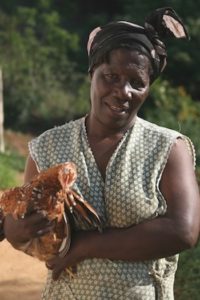
*The Sukuma people are affirmed on this date in 2000 BCE. The Sukuma are a Bantu ethnic group from the southeastern African Great Lakes region.
They are the largest ethnic group in Tanzania, with an estimated 10 million or 16 percent of the country's population. Sukuma means "north" and refers to "people of the north." The Sukuma refer to themselves as Basukuma (plural) and Nsukuma (singular). They speak Sukuma, which belongs to the Bantu branch of the Niger-Congo family. The Sukuma live near the southern shores of Lake Victoria and various districts of the Mwanza, the southwestern tip of the Mara Region, Simiyu Region, and Shinyanga Region; the northern area is in the Serengeti Plain.
Sukuma families have migrated southward into the Rukwa and Katavi regions, encroaching on the territory outside Pimbwe villages. The Sukuma land is primarily flat, scrubless savannah plain between 3,000 and 4,000 ft elevation—twenty to forty inches of rainfall from November to March. High temperatures range from 79 to 90 °F, while lows at night seldom drop below 59 °F. The population is spread out among small farm plots and sparse vegetation. The groups can be called the Nyamwezi–Sukuma complex, for, while never united, they were very closely related in attitude and way of life.
By 1892, however, the herds of cattle began to decline due to rinderpest and tsetse fly. While two-thirds of German East Africa became unsuitable for cattle, cattle generally did not recover until after the First World War. After that, large, valuable herds of cattle were retained by the Sukuma, who could escape any great social change by exploiting the herds economically. Sukuma tradition suggests that famine did become more common towards the end of the nineteenth century.
This left conservative Sukuma blaming religious innovation for the natural disasters and expecting regular sacrifices for the household or chiefdom ancestors. As with all Nyamwezi, the Sukuma, being agriculturalists, ridged their fields to accommodate the fertile but relatively arid region. At the same time, they had herds, having acquired them from the Taoga people, but since "mixed" farming was practiced, they were not considered pastoralists. Usakma also contained and used iron deposits, re-exporting some 150,000 iron hoes to Tabora. The date of This article was chosen to coincide with Tanzania’s independence from Great Britain.